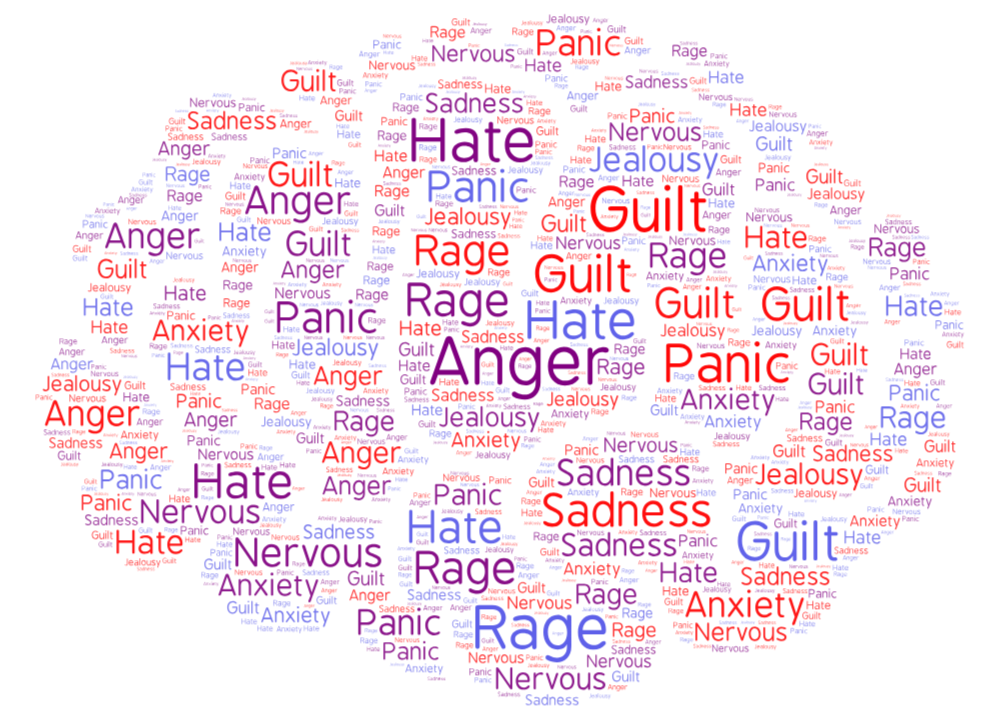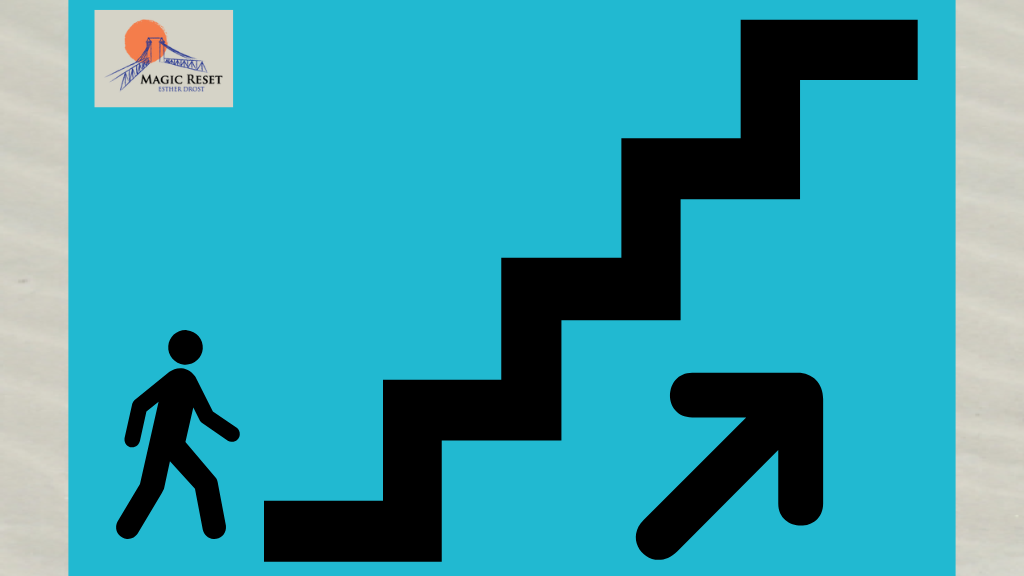Why perfectionists have more pain issues is being explained in this blog. Let’s start with the definition of a perfectionist, according to the Cambridge dictionary;
a person who wants everything to be perfect and demands the highest standards possible
Have you ever observed that a perfectionist notices the tiniest incorrect details… on everything??!!??
Some degree of perfectionism can be healthy if you strive to improve yourself and want to learn from experiences to do better next time. However, when perfectionism becomes excessive, that’s where the turning point is and you will put too much pressure on yourself.
What is the downside of being a perfectionist?
There is a downside of being a perfectionist: perfectionism is often related to pain, either mental and/or physical pain. A study amongst 41.000 students showed an increase in perfectionism which affected their psychological health: higher levels of depression, anxiety and suicidal thoughts compared to 10 years ago.
Let’s first have a look at the mental pain more in detail.
It’s NEVER good enough
Perfectionists often have a tendency that it is never good enough and are constantly criticizing themselves. Here are some typical examples of thoughts of a perfectionist:
This is badly structured
It misses this particular details
This is not good enough
I can make it more sophisticated when I add this
I should have finished this in 2 hours instead of taking all day
Why did I not do/say this?
And that list can go on and on… the result? The perfectionist often brings himself down.
It’s often ALL or NOTHING
The perfectionist inclines towards a behavior for all or nothing. He has this kind of irrational desire to succeed and be a good person. He sets the bar so high that it’s impossible to reach it. He wants EVERYTHING, puts ALL his effort, ALL his energy and ALL his time into it, but in the end it’s impossible to have it all and he flips… towards the NOTHING and he empties himself.
That perfectionist is so afraid of making mistakes, afraid of being “exposed” as a failure. What’s more, he doesn’t want to admit this because it will make him look “weak”.
And since he has has the desire to be perfect, that’s not possible!
Result: PANIC!!! I’m feeling desperate!!
This results in little self-esteem and low self-confidence.

It’s a vicious cycle in which he is trapped of constantly questioning himself and brooding over his mistakes and wanting to improve.
Perfectionism can slow down own progress
The perfectionist can slow down his own progress due to constantly putting more time and energy in as it’s not good enough and this swinging between good and bad.
His work or actions are NEVER FINISHED… NEVER!
There is always this excessive concern that it is not good enough: Oh look, there is still something missing here.
Is it finished…? NO!! It needs to be improved here and there.
It can happen that it’s a TOTAL CHAOS in the mind of a perfectionist!
Their brain slows down. So, what’s the result?
ZERO progress. Immobilization. No results… no success! BAM, going to the NOTHING side.
Become aware of the stress that perfectionism generates!
It is important to become aware of the stress that perfectionism generates. All this internal stress and tension due to these constant pressures and auto-criticism. Everyone experiences stress to some degree and we all deal with stress differently. A perfectionist tries to be the perfect person, but ignores own needs and represses his feelings and emotions. And that can generate physical pain.
The perfectionist often represses (negative) emotions
The perfectionist often represses (negative) emotions as he does not allow himself to feel negative emotions and over time he has developed an unconscious habit of repressing these emotions. He does not want to identify himself with these emotions as then they will not be the perfect positive person they would like to be! The following list of emotions are rarely on their ‘feeling-radar’:
Anger – as a Perfectionist wants to be perfect, he cannot be angry as that would not make him a perfect person to be around with.
Rage – rage is even worse for a Perfectionist as he would give the impression he might be a violent person!
Hate – hate is also not a emotion that is on the radar of a Perfectionnist; he wants to be seen as a peaceful person.
Overwhelmed – imagine a Perfectionist not being able to keep oversight and manage all that he has to do: impossible!
Deception – how on earth can a Perfectionnist deceive anybody; it would prove he is not perfect.
Jealousy – a Perfectionnist to admit somebody is better then he is? HAHAHA.

Yet these are very healthy normal human emotions and everybody has these! Yes everybody, no single exception. When a person does not allow these feeling to be there, it’s like as if you’re blowing up an internal balloon!
Every time the perfectionists has thoughts about it’s not good enough, he inflates the internal balloon.
At one point in time, too much is too much and then the balloon explodes.
Our brains are wired to protect us in case of physical danger but this is also true for emotional danger. Emotions that are not allowed to come up in awareness will be considered dangerous for the brain and the brain will divert from these and generate physical pain, like head-ache, backpain, shoulder pain. Did you know that 80% of chronic pain sufferers is a Perfectionist?
Where does perfectionism come from?
Often, perfectionism is developed because there is a feeling that high expectations must be met. For example, from parents who want their child to do very well at school. Then from an early age on, often unconsciously, enormous pressure is placed on the child. If it doesn’t meet the parents’ standards, the child might feel inadequate or even defeated.
There may be a fear of failure if it is not perfect: performance anxiety is common among children.
Today’s outside world is incredibly demanding! Because we constantly compare ourselves with the outside world, the perfect image that is being projected and hence we often consider ourselves ‘not good enough’… or we get the idea that we are still missing this or that or not being good enough.
How to get rid of the excess perfectionism
To get rid of the excess of perfectionism, it foremost requires consciousness of own emotions and behavior. Remember this: you are not a perfectionist, you ‘do’ perfectionism.
- You can change your behavior.
- You can learn to become aware and feel emotions.
What most people have not learned, is that an emotion is just an emotion; they come and go like clouds in the sky. No need to give them meaning. Just let them pass through you. They are visitors that sit with you for a bit and then go again. They are part of human life. If you do not allow these emotions, de facto you are ‘out of balance’. Change your self-image; somebody that wants to be perfect needs to be in balance! - Learn how to put things in perspective, take yourself a little less seriously. Try laughing at your imperfections.
- Instead of comparing yourself to others: you are your unique you and they are their unique them.
- Instead of never stopping, let it go and avoid losing time and energy: just say STOP. Imperfect action beats perfect inaction. Progress is more important than standstill.
- Take one step at a time and spend time on something else.
- Instead of being torn between all or nothing, say that for NOW it’s good enough. Make mistakes and errors: they increase your experience! You grow, that’s fantastic!
- Learn how to not give a fuck: Something is imperfect?? oh yeah baby SO WHAT!!

Because ultimately, when you take a staircase, you can’t jump all the steps at once….
You climb it step by step….!!
Positive sides of being a perfectionist
There are also positive sides of being a perfectionist. Successful sportspeople, business people, singers, actors, they are performing so well because of their perfectionism! They run the extra mile, they put the extra effort in. That’s fantastic!
- They are often great empaths.
- Have eye for detail. Very practical in many situations.
- Is reliable, meets deadlines.
- Works at a high pace
- In teams it is great to have perfectionist as they will aim for the best result as a group, not only for themselves.
The fact that they do their utmost and want to get the maximum possible, they are challenging not only themselves, but they are also inspiring people around them and that can be a motivation for everybody.
So that’s very positive about the perfectionist. Good to be aware of too sometimes.
Want to know more about other character types that are more prone to suffer (chronic) pain?
There are other character types that are more prone to create stress and tension and hence physical pain, like the control-freak, people-pleaser and sensitive to criticism.
Get in touch with me if you would like to know more: send an email to esther@magicreset.com
I’m Esther Drost and have suffered 6 years of chronic pain in my back, leg, knee, shoulder and under my foot. The pain started in the back and it shifted to another spot after a while. What I learned is that it all had the same cause. I’ve tried 38 methods to find pain relief. I found the solution and since 2018 I’m out of chronic pain. Ready to help you.

